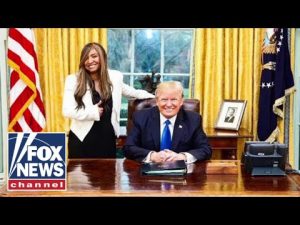**The Legal Tug-of-War Over MS-13 Deportations: An Unprecedented Saga**
In a story that’s as wild as a rodeo gone wrong, the Trump Administration recently found itself embroiled in a legal circus revolving around the notorious gang MS-13. It seems like every day brings a new headline, but this one is definitely a doozy. The administration made the bold decision to deem MS-13 a terrorist organization under the Alien Enemy Act, which would allow them to kick out gang members and other non-citizens who posed a threat to public safety. Seems straightforward, right? Well, not quite.
As the planes whisked away suspected gang members to El Salvador, a judge decided to chime in and rule that these flights must return immediately. Picture it: planes in midair, flying towards a foreign land and suddenly getting told to do a U-turn mid-flight because a single district judge said so. This is the legal tug-of-war that raised eyebrows and, quite frankly, questions about how much power one judge can wield over the executive branch.
One might wonder how a ruling from a low-level judge could derail not only a flight but also the President’s foreign policy decisions. The situation is more befuddling than a cat video gone viral. The administration, led by Trump, had essentially struck a deal with El Salvador to accept these criminals. Now, one must ask, what authority does a lone district judge have to halt a diplomatic agreement? After all, when it comes to foreign policy, it’s the President’s job to negotiate, not a judge’s.
Critics are quick to call the whole thing a violation of due process, but supporters argue that due process looks different when it comes to non-citizens engaged in criminal activity. The debate around whether the planes took off before or after the ruling is akin to arguing over who wins a race when both runners fall at the starting line. The larger issue is whether this judge had the authority to interfere with the President’s actions, which were designed to protect American citizens.
The situation begs for transparency from the Trump Administration. Calling on the administration to provide a detailed list of the individuals being deported could ease concerns, because it’s not just about immigrants or non-citizens; people want to ensure that American citizens and lawful residents do not get caught up in the crossfire of legal disputes. It’s like ensuring the right people are getting on the bus instead of a haphazard mix of passengers.
As this legal drama plays out, what is clear is that the battle between the executive branch and the judiciary is far from over. In the eyes of many, it boils down to the basic question: Who’s calling the shots, and can the President actually enforce policies without a judge stepping in? The next chapter of this story will undoubtedly make for some additional scuffles in the political arena, drawing lines between differing ideologies and reigniting discussions about the separation of powers. In the grand game of political chess, the outcome remains uncertain, but one thing is for sure—pass the popcorn!







